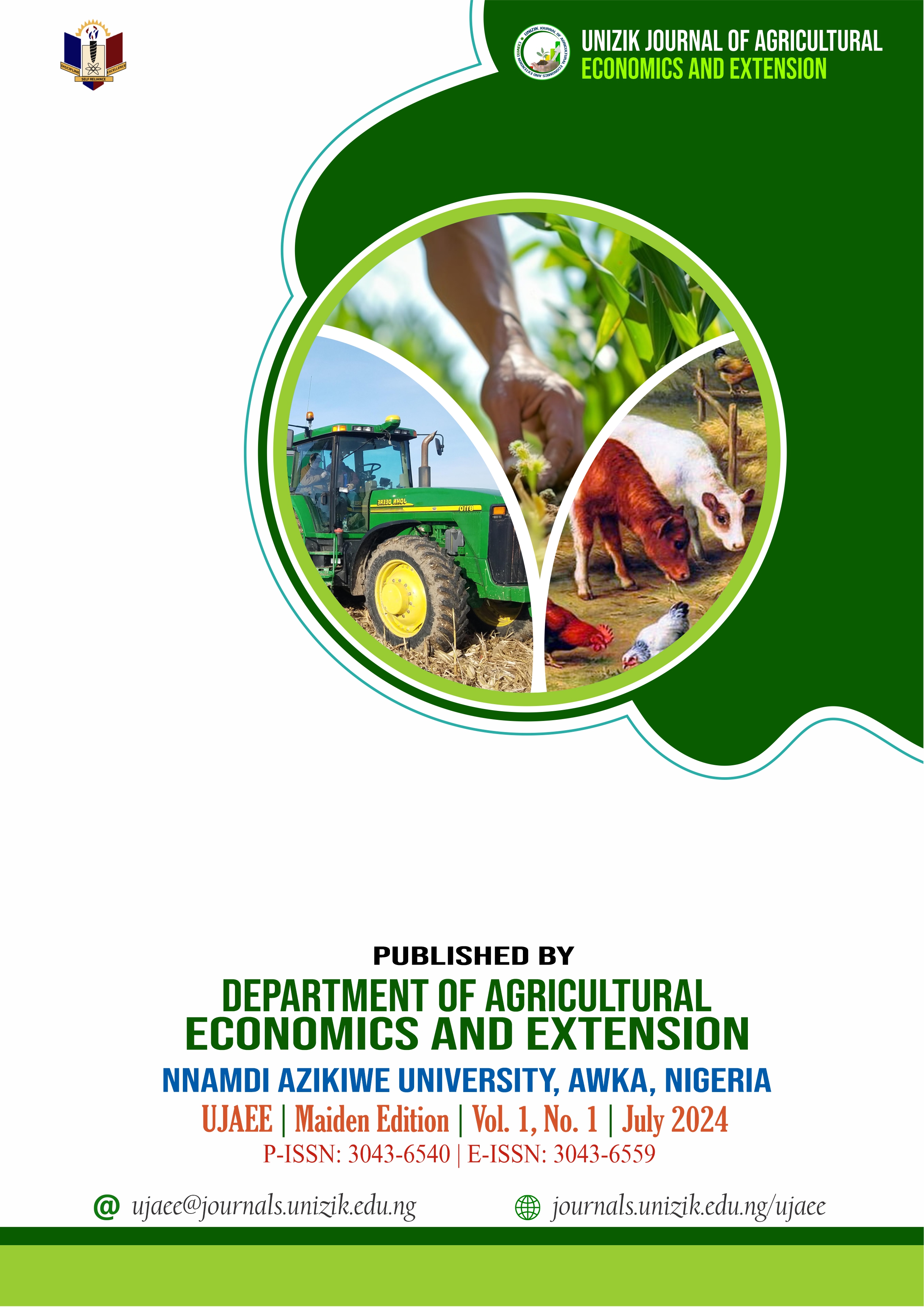Sociocultural Factors Influencing Adoption of Shea Butter Processing Technologies in Oyo State
Keywords:
Nutrition food security, Shea butter processing, Technology usage, Vulnerability to povertyAbstract
This study investigates the effects of livelihood outcomes on the use of improved shea butter processing technologies in Oyo state Nigeria. Multi-stage sampling procedure was used to select 386 shea butter processors as respondents. Primary data were collected using interview schedule. Descriptive and multiple regression were employed to analyse data. Findings showed that respondents were female (91.5%), 85.5% are married, average of 55.2 years of age, average of 7 household members. The socio-cultural characteristics of the respondents revealed that 39.9% were without formal education, 47.9% and 44.3% were Muslims and Christians respectively, about 74.4% of the respondents had 6-10 persons per household, 95.3% of the respondents were members of agro-processing group while majority 44.0% combined Shea processing with employment as civil servant. Results from regression analysis (R2 = 0. 718, F = 6.327, p < 0.01) revealed that socio-economic factors significantly influenced the adoption level of Shea butter processing technologies among processors in Oyo State. By implication, socio-cultural characteristics of shea butter processors predicted 71.8% of processors’ probability to adopt the shea butter processing technologies. The result of the inferential analysis further indicated that annual income from shea processing (β = 6.196) and other occupations (β = 1.540), showed significant relationship. Membership of social group also showed positive significant relationship (β = 2.092). The study concluded that adoption of ISBPTs among Shea Butter processors in Oyo State is low and socio-cultural factors such as educational status, family size, religious affiliation, annual income significantly influenced the adoption of ISBPTs among Shea butter processors in the study area. It is therefore recommended that Shea butter processors should be granted access to credit facilities to boost adoption of ISBPTs. Shea processors should also be exposed to extension agents and sensitization should be carried out by relevant stakeholders to disabuse the religious beliefs influencing adoption ISBPTs in Oyo State.
Downloads
Published
Issue
Section
License
Copyright (c) 2024 UNIZIK Journal of Agricultural Economics and Extension

This work is licensed under a Creative Commons Attribution-NonCommercial-NoDerivatives 4.0 International License.




